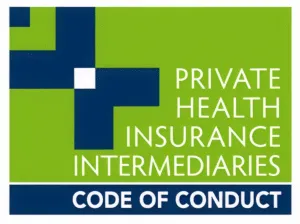What is the Medicare Levy?
The Medicare levy is a tax that’s deducted from your income in order to fund Medicare. According to the ATO, the levy is currently 2% of your taxable income, and is in addition to your personal income tax.
Depending on your personal circumstances, you may get an exemption or a reduction to this rate, which you can apply for separately with the ATO.
How much does the Medicare Levy cost?
The Medicare levy is 2% of your taxable income at the time of writing. The ATO has a Medicare levy calculator that you can use to calculate exactly how much you might be required to pay.
For example, a single person with a taxable income of $80,000 in the financial year 2024/25, with no dependents and no exemptions, might expect to pay a Medicare levy of $1,600, according to the calculator.
The ATO says there may be some reasons this calculator may not be applicable, such as if you’ve received exempt foreign employment income or had a spouse and they were eligible for seniors and pensioners tax offset (SAPTO), or got a super lump sum during the year but paid no tax on some or all of it.
What is the Medicare levy threshold?
For those earning below a certain income threshold, the Medicare levy is either waived or reduced.
For singles, the lower threshold is set at $27,222 for FY24/25. That means if you earn less than this amount annually, you will not need to pay the Medicare levy. Singles earning between $27,222 to $34,027 are entitled to a reduced Medicare levy.
For seniors and pensioners entitled to the SAPTO, the threshold is set at $43,020. If you earn between $43,020 and $53,775 as a senior or pensioner, you’ll be entitled to a reduced Medicare levy.
For families, the threshold is set at $45,907. If you earn between $45,907 and $57,383 annually as a family ($59,886 to $74,857 if you are entitled to SAPTO), plus $5,270 to the threshold for each dependent child you have, you’ll be entitled to a reduced Medicare levy.
Who pays the Medicare Levy?
Almost every Australian taxpayer who earns above the lower threshold will pay the Medicare levy (in full or at a reduced rate); however, there are a few exemption categories. The ATO says that you may be eligible for an exemption if you:
- meet certain medical requirements;
- are a foreign resident, or;
- are not entitled to Medicare benefits.
If you have any dependants, you’ll need to consider both their circumstances and your own in deciding if you may get an exemption, says the ATO.
If you qualify for an exemption, you can claim this through your tax return. You’ll also need to apply for a Medicare Entitlement Statement from Services Australia. The Medicare Entitlement Statement tells you the period during a financial year that you weren’t eligible for Medicare.
What is the Medicare Levy Surcharge?
The Medicare Levy Surcharge (MLS) is different from the Medicare levy. The MLS is an amount that you will have to pay when you lodge your tax return each year if you earn above a certain threshold and do not have private hospital cover.
For the 2025/26 tax year, if you earn over $101,000 annually as a single or $202,000 or above as a family (plus $1,500 for each MLS dependent child after your first one) and you do not have appropriate hospital cover, you’ll need to pay the MLS.
The MLS will be calculated as a percentage of your taxable income. The levy also applies to your total reportable fringe benefits, as well as any amount on which family trust distribution tax is paid.
The MLS was introduced to help ease the burden on the Medicare system by encouraging Australians on higher incomes to take out private health insurance.
How much is Medicare Levy Surcharge?
This will vary depending on your income and family status. If you earn over the income threshold and don’t have an eligible private hospital insurance policy, you could be charged between 1%-1.5% of your taxable income—including fringe benefits and other applicable considerations.
How is the Medicare Levy Surcharge calculated?
The Medicare Levy Surcharge is calculated as a percentage of your income and is payable to the Australian Taxation Office (ATO) when you lodge your tax return. This rate ranges from 0% for those under the income threshold to up to 1.5% for those earning over $158,001 as a single person without children or $316,001 as a family.
Do I have to pay the Medicare Levy Surcharge?
Whether or not you have to pay the Medicare Levy Surcharge depends on your income. The ATO states that the definition of your ‘income’ for MLS calculation purposes includes your taxable income, plus some other considerations, such as fringe benefits, super contributions and, if applicable, your spouse’s income. The ATO’s website includes a full list of these considerations, as well as a calculator you can use to work out whether you’ll have to pay the MLS and, if so, how much you may have to pay.
Generally speaking, you’re likely to pay the MLS if you:
- Don’t have the minimum level of hospital cover required and are part of a family earning more than $202,000 per year or
- are a single person without children earning more than $101,000 per year.
For a more detailed breakdown of the income brackets and the MLS rates that apply to them see the table below.
Medicare Levy Surcharge by income bracket for 2025-26
If your income is: | ||||
|---|---|---|---|---|
Singles | $101,000 | $101,001 to $118,000 | $118,001 to $158,000 | $158,001 |
Families | $202,00 | $202,001 to $236,000 | $236,001 to $316,000 | $316,001 |
Your MLS is: | 0.0% | 1.0% | 1.25% | 1.5% |
Source: ATO, current as at November 2025 for the 2025-26 financial year.
How do you avoid paying the Medicare Levy Surcharge?
You can avoid paying the Medicare Levy Surcharge by having private hospital cover in place which includes all of the following, as a minimum:
- Private patient hospital cover
- provided by a registered health insurer
- with a maximum policy excess of $750 for singles and $1,500 for couples or families.
What’s the difference between the Medicare Levy and the Medicare Levy Surcharge?
It’s important to note the difference between the Medicare Levy and the MLS. As the Federal Government’s PrivateHealth website explains, the Medicare Levy is a tax applied to almost all taxpayers which helps fund Australia’s public health system. Depending on a range of factors, you may have to pay both the Medicare Levy and the MLS.
Costs comparison: Medicare Levy Surcharge vs private health insurance for the 25-26 financial year
It could be worth working out what MLS you could be paying and compare it to what a private health insurance policy would cost you, to see if there could be any savings to be made come tax time.
Canstar Research has analysed policies on our database, the results of which may help when comparing the MLS to the average cost of private health insurance. It should be noted that the following data relates to the 25-26 financial year and uses both the MLS income thresholds and private health insurance rebate tiers for this financial year. The following is an estimate only.
Average national annual hospital insurance premiums by profile and hospital tier
Hospital tier | Single policy | Family policy |
|---|---|---|
Basic | $1,070 | $2,129 |
Basic Plus | $1,230 | $2,542 |
Bronze | $1,336 | $2,699 |
Bronze Plus | $1,480 | $3,005 |
Silver | $1,838 | $3,712 |
Silver Plus | $2,417 | $4,824 |
Gold | $3,653 | $7,207 |
Source: www.canstar.com.au - 18/06/2025. Based on hospital insurance policies on Canstar’s database. OSHC, visitor and corporate policies are excluded. The Australian Government Private Health Insurance Rebate, Tier 1 for under 65s, of 16.192% in Jun-25 has been applied to premiums. National average based on state averages weighted by proportion of hospital insured persons per APRA Quarterly Private Health Insurance (March 2025).
MLS vs health insurance: Hypothetical examples for the 25-26 financial year
Hypothetical example one:
Using ATO calculations for the 2025-26 financial year, if you’re part of a family with a combined income of $220,000 and don’t have private health insurance, then your MLS would be $2,200.
The average private health insurance premium on Canstar’s database at the time of writing for
- a family
- with Basic family hospital cover
- including a rebate of 16.192%
- costs $2,129
Comparison (under these hypothetical conditions):
- MLS = $2,200
- Private health insurance premium = $2,129
Options to consider:
- Pay MLS and have no health insurance: Costs an extra $71/yr
- Buy health insurance and avoid the MLS: Saves $71/yr (with the added benefit of having private health insurance, but this doesn’t take into consideration any excesses you may have to pay when making a claim).
Hypothetical example two:
According to the ATO, if you’re a single person aged under 65 without private health insurance, and you earn between $101,001 and $118,000 for MLS purposes for the 2025-26 financial year, then the MLS you would pay would be 1% of your income. This would cost you between $1,010 and $1,180.
The average private health insurance premium (on Canstar’s database) for
- a single person
- with a Basic hospital policy
- including the rebate of 16.192% for those earning between $101,001-$118,000
- costs $1,070.
Comparison (under these hypothetical conditions):
- MLS = $1,010 to $1,180
- Private health insurance premium = $1,070
Options to consider:
- Pay MLS and have no health insurance: Ranges from a saving of $60 to costing $110 extra compared to the average Basic hospital policy.
- Buy health insurance and avoid the MLS: Ranges from costing an extra $60 to saving $110 (with the added benefit of having health insurance, but this does not take into consideration any excesses you may have to pay when making a claim).
When is the Medicare Levy Surcharge deadline?
The Medicare Levy Surcharge is applied each financial year when you lodge a tax return. If your private hospital cover starts after 1 July of a particular financial year, the surcharge will only be applied for the period in which you didn’t have cover.
If I change or suspend my hospital cover, will I be charged the Medicare Levy Surcharge?
If you change your private hospital insurance provider or suspend your cover you’ll be liable for the Medicare Levy Surcharge if there’s a gap between when one policy ends and a new one begins and you’re earning above the income thresholds.
Do non-Australian residents have to pay the Medicare Levy Surcharge?
Non-Australian residents may be subject to the Medicare Levy Surcharge if they’re considered Australian residents for tax purposes or are Medicare eligible. Medicare eligibility is often granted by a Reciprocal Health Care Agreement (RHCA), meaning if you’re a citizen of the UK, Sweden, Finland, Norway, Belgium, The Netherlands, Slovenia, Malta, Italy, Ireland, or New Zealand you may be Medicare eligible. If you earn over the Medicare Levy Surcharge threshold and don’t have a hospital cover policy in this case, you may have to pay the Medicare Levy Surcharge.
It’s important to note that Overseas Visitors Health Cover (OVHC) and working visa health cover aren’t considered a sufficient degree of private health cover to afford you exemption from the Medicare Levy Surcharge.
Foreign citizens who aren’t Medicare eligible or Australian residents for tax purposes can complete a Medicare Entitlement Statement to exempt themselves from paying the Medicare Levy Surcharge.









